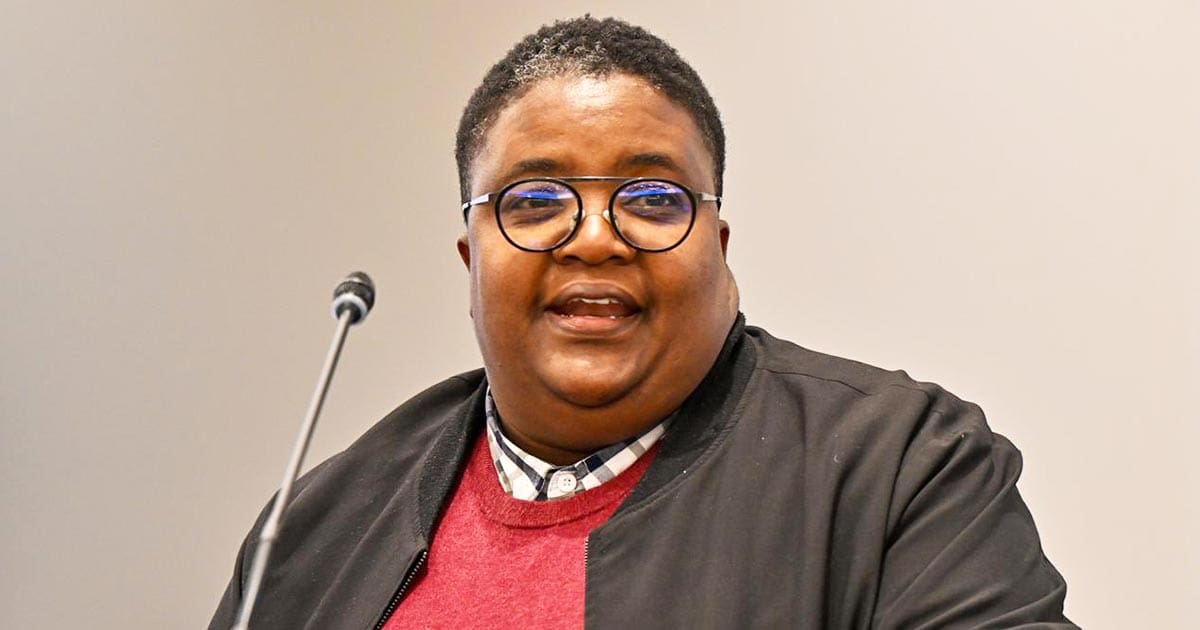Deputy Minister Steve Letsike Marks 10 Years of Resolution 275 in Africa

Deputy Minister Mmapaseka Steve Letsike delivered the closing address at an event in Johannesburg to mark 10 years of Resolution 275 (Photo: WeBelongAfrica / X)
South African Deputy Minister Mmapaseka Steve Letsike says that despite the 10th anniversary of the African Union’s landmark LGBTQIA+ affirming Resolution 275, a great deal remains to be done to protect queer people on the continent.
Resolution 275, titled Protection Against Violence and Other Human Rights Violations Against Persons on the Basis of Their Real or Imputed Sexual Orientation or Gender Identity, was adopted by the African Commission on Human and Peoples’ Rights in Luanda, Angola, in 2014.
The historic resolution condemns violence, human rights violations, and persecution of people based on their sexual orientation or gender identity. It urges states to end all acts of violence and abuse, including enacting and enforcing laws that prohibit and punish violence targeting LGBTQIA+ persons.
It also calls on states to ensure that human rights defenders can work in an environment free from reprisals or criminal prosecution in their efforts to protect the rights of sexual minorities.
This marked the first time the African Commission affirmed the rights of LGBTQIA+ Africans.
Progress and Challenges: LGBTQIA+ Rights in Africa
Resolution 275, however, continues to be overlooked or ignored in many parts of Africa, where LGBTQIA+ people face daily persecution and marginalisation often backed by discriminatory and dehumanising laws and State policies.
A multi-country meeting was held in Johannesburg from 28 to 29 August to commemorate the 10th anniversary of Resolution 275. The gathering, which was hosted by the UNDP’s We Belong Africa Programme, Pan Africa ILGA, Synergía – IHR, and the University of Pretoria’s Centre For Human Rights, aimed to reflect on progress made and the challenges in meeting the obligations outlined in the resolution.
Letsike, a long-standing LGBTQIA+ human rights defender and now the Deputy Minister in The Presidency for Women, Youth and Persons with Disabilities, delivered the closing address at the event.
She expressed optimism that, since the resolution’s adoption, several African countries have decriminalised homosexuality and enacted progressive legislation to protect LGBTQIA+ persons.
Homophobia as a Colonial Legacy: A Call for Ubuntu
“We must, however, be frank in our reflections and acknowledge that much more needs to be done,” said Letsike. “There are still spaces on the continent where homophobia, transphobia, sexism, patriarchy, and misogyny are not just woven into the social fabric, but have been legislated, with the death penalty imposed in some countries for homosexuality.”
She highlighted the abundant evidence showing that queer identities have always existed in African societies and noted that the roots of homophobia and transphobia on the continent lie in “the colonial project and its subsumption of our values, norms, and cultural practices.”
Letsike asserted that “the victimisation, discrimination, abuse, and inhumane treatment of members of the LGBTQIA+ community in some of our countries is un-African,” adding that “We cannot stand by and allow a tendency that is detached from our common ethos of Ubuntu to be normalised.”
The Way Forward: Key Areas for Change
While there has been progress in countries like Angola, Botswana, Mauritius, Mozambique, and Namibia, the environment for LGBTQI+ people has worsened in other nations such as Ghana, Nigeria, and Uganda.
Thirty African countries still criminalise same-sex intimacy and relationships, with the death penalty as possible punishment in Mauritania, Nigeria and Uganda.
Letsike emphasised that states must address several key areas to ensure the full realisation of LGBTQIA+ human rights across the continent.
These include legislative measures to protect LGBTQIA+ persons from violence, combating torture and ill-treatment (such as corrective rape and arbitrary arrests), repealing anti-LGBTQIA+ laws, prohibiting all forms of discrimination, safeguarding freedoms of expression, association, and assembly, and ensuring LGBTQIA+ representation in African Union bodies and decision-making platforms.
“If there is one key message that all Member States must take from this commemoration of a decade with Resolution 275, it is that in our quest to create a better society for all, our efforts must ensure that LGBTQIA+ persons enjoy access to human rights as equal members of the human family,” said Letsike.
Leave a Reply